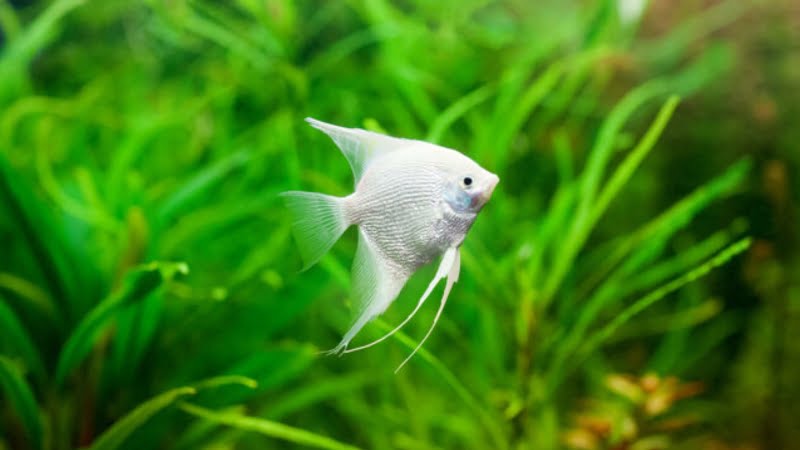The love and care you give to your angelfish is not a sign of shame. For me, they are like my pets. Do you wonder that do angelfish get lonely?
They will demand attention and entertainment, as well as my attention in return. Even at times when I had only one angelfish in my tank, I started wondering if it gets lonely and even if it is a social fish.
After researching this a bit more, I found out that angelfish are actually social fish. It didn’t take me that long to find out that they are social fish.
I think it’s safe to say that angelfish do experience loneliness, and sometimes even depression.
Scientists have demonstrated in previous research that the lack of stimuli can negatively affect fish.
Because of this lack of companionship and the desire to swim at the bottom, your angelfish may have a loneliness issue.
I have found that in order to fix this issue, you could potentially add a few companions to the tank or use a bigger tank altogether.
However, since your angelfish don’t show any gestures, it is very difficult for you to tell how they feel.
Thus, I will show you a few techniques that will give you a better understanding of the spirit of your angelfish as we continue through this article.
Related Articles
- Do Angelfish Like To Hide? 7 Reasons Will Answer All Your Wonders
- Do Angelfish Fight And 6 Ways To Make Them Stop Fighting With Others
- Do Angelfish Jump? – 6 Reasons And 6 Ways To Stop Them Jumping Out Of Their Tank
- Freshwater Angelfish Fundamentals – Care Guide: Lifespan, Size, Diet, Habitat & More
Do Angelfish Get Lonely?
Especially for new fish owners, it can be a challenging question to answer. Fish do not have emotions; therefore, they cannot express themselves. It is impossible to know what they are thinking since they do not have emotions.
The facial features of most dogs change in accordance with their mental and emotional states, while the facial features of fish remain the same.
There is no difference between angelfish and other kinds of fish. Many people believe this trait to be evolutionary, and that fish have adapted to avoid exhibiting sickness symptoms for many years to come.
In other words, they prevent themselves from becoming the target of predators who might isolate them as a result of their appearance of weakness.
Because of this, you have no way to tell if your angelfish is lonely, as it is not obvious from any other sign he is lonely.
Do you think it is even possible for an angelfish to get lonely? This question can be answered in a number of ways:
How do you define loneliness? Ideally, in order to feel lonely in the presence of others in its environment, a creature must be cognizant of the fact that it is alone in this world.
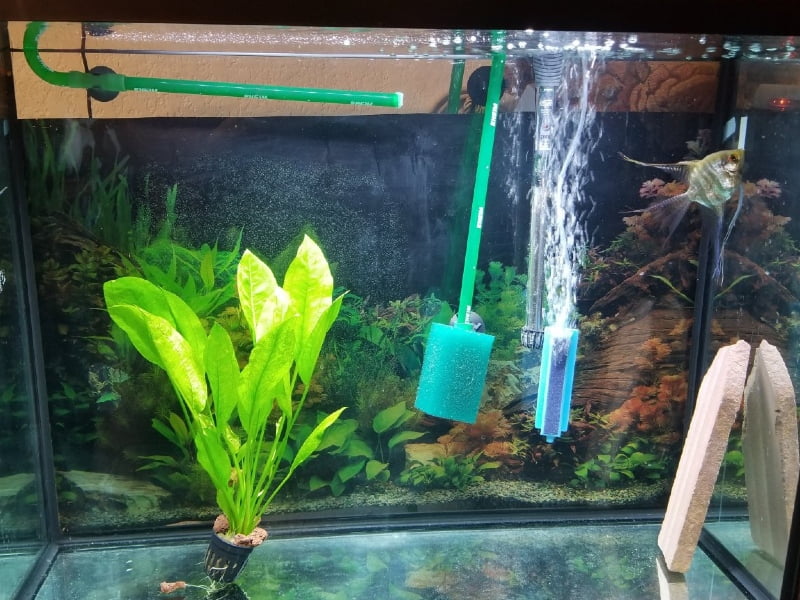
This awareness can be accompanied by negative sensations, perhaps similar to those we experience when we first become aware of something.
In the vast majority of cases, we encounter angelfish as intelligent creatures that are capable of noticing when other fish enter or leave their aquarium and taking action accordingly.
What would happen, however, if they suddenly found themselves isolated for no apparent reason? That is indeed what would happen. But why? Angelfish are social fish and their behavior reflects their social status.
This species of fish prefers to live in groups with other angelfish, preferably of the same species or different species.
When you isolate them from their natural environment, you force them to acclimatize to unnatural situations. As a result, they become bored and then lonely.
Angels, like all animals, are susceptible to feeling lonely, but not all angels suffer from this affliction.
Angelfish have their own unique personalities, similar to the rest of all intelligent creatures.
It is true that some angelfish may suffer from loneliness if you are keeping them in a tank by themselves, but there are others who will actually thrive by themselves.
Most fish owners will tell you they no longer encounter any problems with having a single angel in a tank, as they have plenty of other fish to keep.
Although, there are also those who preach the opposite of this when it comes to angel fish. This kind of problem should always be approached on a case-by-case basis.
You may ask your angelfish if it is lonely or not, it will let you know.
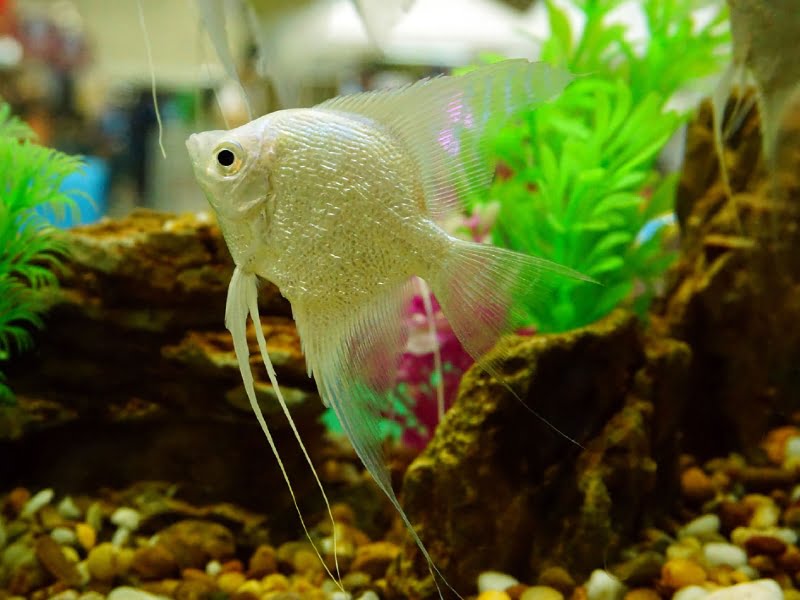
A fish that is lonely can suffer from serious health problems. In some cases, it is seen as an indication that the fish has become isolated through unexpected events.
The only danger to you though, is that loneliness is capable of harming your angelfish. Loneliness can reduce the appetite of your angelfish.
The effects of this poor quality of sleep may also induce stress, which in turn can create an environment conducive to physical ailment.
Regardless of why fish owners dismiss this issue, you can not blame them for doing so. Human beings can suffer from loneliness because loneliness can lead to depression, which can lead to all kinds of health problems.
People who experience depression are prone to various types of illnesses and even to die.
In the opinion of most fish owners, the idea of their fish exhibiting depression would be unthinkable.
Perhaps this is partly due to their superficial expressions. It is also believed that fish owners believe that colleagues who diagnose their angelfish with depression and then loneliness are simply projecting their thoughts.
People who believe their plants can hear them are not any different from people who believe their own plants can sense them. The belief that fish suffer from depression is however based on the science of this kind:
The first thing to understand is that there is research going on using fish as a source of antidepressants and that scientific development is taking place. Fish and human brains have some similarities when it comes to the way neurochemistry works.
Despite his disapproval of the idea that fish suffer from depression, Professor Julian Pittman, from Troy University, of Alabama, doesn’t have to be persuaded.
His current research is being conducted using fish to diagnose and treat depression, and also develop medicines for preventing and treating such disorders.
As Julian found out, angelfish suffer from depression, as demonstrated by a very interesting experiment that he did.
A tank for him is made up of two sections, namely, the upper section and the lower section, letting him keep fish in both sections.
As we have defined below, the borders between these two sections are delineated by a horizontal black line drawn across the entire tank.
The experiments he conducts in his research involve a zebrafish. Zebrafish will drop to the lower half of the tank when they feel depressed, as it is a protective instinct.
Zebrafish will swim to the top of the tank when they are buoyant. In this case, fish manifest their symptoms of depression physically in their behavior.
It is likely that fish experience depression, and as a result, show signs of depression when they are stressed.
The test subjects of Julian’s experiment aren’t just left to get depressed on their own.
Alcohol was used in his experiment, but the results of his experiment cannot be disputed because he used it to induce the condition.
In his opinion, Julian believes fish can suffer from depression in much the same way people do, which is reflected by the amount of time they spend on either side of the tank.
Many people argue that by confusing depression with anxiety, scientists like Julian are causing suffering in those who suffer from depression.
The symptoms his subjects exhibit, however, are unmistakable signs that they are fighting depression, and Julian believes this is the case for almost all of them.
The rabbits do not only refuse food, but they also cease to play and explore, just like people who suffer from depression.
Apparently Julian did not say that loneliness is responsible for depression in fish, but it might be a contributing factor. He suggests a lack of stimulation, and that might be his point of contention.
An angelfish falls into this trap when the tank is not populated with any playmates for it to keep it entertained; this is what happens when it is lonely.
Despite the fact that there was a time when many people believed angels could not feel negative emotions like loneliness and depression, Julian Pittman’s work has provided positive evidence to the contrary.
How Do You Know When Your Angelfish Get Lonely?
How can you determine if your angelfish are experiencing depression now that you know that angelfish suffer from depression?
If you don’t know that a problem exists, you’re not going to be able to start solving it. The following are signs you should always look for when dealing with angelfish:
Observe Its Colors
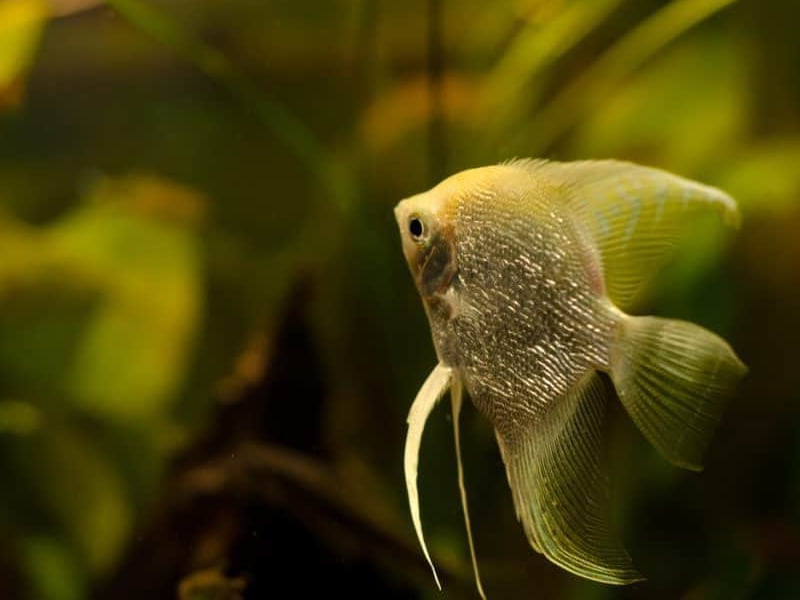
Angelfish are known for their bright colors and are known for being extremely hard to catch.
These colors can suffer a loss in intensity if disconcerting factors are present in the atmosphere.
It is possible that your lonely angelfish is lonely if you notice that its colors are becoming dim.
A stressful environment can lead to the color becoming brighter. It is easy to conclude that loneliness is the cause of a fish suffering from stress and depression when it is left alone in a tank.
Betta fish are also likely to suffer from depression when left alone in a tank.
The reason why angelfish stripes fade and disappear had been discussed before in my previous article on the subject.
In the case that you suspect that this is the situation in which you are involved, I highly recommend you to read it.
There are six essential solutions that I included there to ensure that your angels will appear with vibrant, color-rich hues as you expect.
Analyze Its Activities
In addition to what has been mentioned above, the activity of your fish can also give insight into its emotional state and its level of distress.
Since fish are curious creatures, they spend most of their time investigating their surroundings. So if previously active angels appear to disappear from the tank suddenly, it could be that they have simply lost their companionship.
Especially when you’ve done it right and your angel didn’t leave the lower parts of your tank, which is particularly true when you’ve done everything right.
It is since then that I have covered this issue in this article and listed all the steps you can take to avoid this problem. It’ll probably be necessary to introduce some companions to your friend in order to get rid of the loneliness.
Consumption Habits
There are various types of angelfish and they are all voracious eaters. In order to keep them occupied, you will need to give them food continuously until they stop eating. You should not be concerned about them rejecting food.
It should be noted that they are quite adamant about getting their food. Considering this, it is reasonable to assume that if your angelfish is isolated to an extent that it begins to lose its appetite, it is likely due to loneliness.
Learn as much as you can about the tank. Does any food remain unattended in the tank? Do the Angelfish appear to be consuming food at a slower rate than others? Could this be due to their smaller size? Does their behavior appear to be sluggish as a reaction to food that is present?
This should call your attention to the fact that your fish may be lonely and you ought to find a solution to it.
Interactions With Others
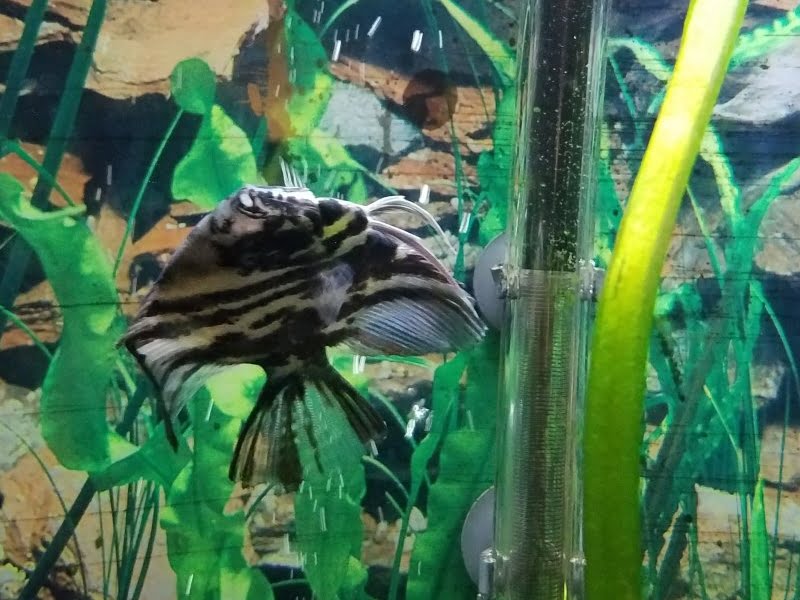
Angelfish are creatures with a very active lifestyle. Once they have seen their owners, they should react with excitement according to how long they have been with you.
During mealtimes, and to engage them, it does not only happen at mealtimes but also at any time when you draw on their tank, tap on their glass, whatever the case may be.
It was the conclusion announced in a previous article that the angelfish it is believed to recognize their owners; I found this to be true.
Also, if you are interested in learning more about these techniques, you can also find them in the method below to help them see you as their grower and perhaps to like you even more.
Angelfish cannot jump into your arms as if they were dogs, which can get very excited about something.
Nevertheless, they do still have their own form of interaction with you using their motor skills, such as swimming, jumping, and looping.
When your angelfish refuses to react in any way to or respond to your behavior, you should be concerned.
The person is probably lonely and depressed in case they aren’t sick. I don’t think it’s difficult to tell if someone is sick or not.
There are blemishes or spots that may be found on ill angels, making them look rough.
Their fins may also be frayed, making them appear less smooth. So become frayed over time. When you look closely enough, you won’t be able to miss a sick angelfish.
How Should I Address My Angelfish’s Loneliness?
It does not seem right that your angelfish is lonely and depressed instead of being sick, but that is not a good thing to be going through no matter what.
I suppose that loneliness and depression will eventually take their toll on our angelfish.
It is imperative that you take certain measures as soon as you discover that your angelfish is lonely. The following are a few options that you can consider:
There are several ways to resolve this issue, but the first is the most obvious. Adding another fish to the aquarium may be the solution to your problem. Perhaps more angelfish could be added to the aquarium.
Finding an angelfish that will live peacefully with your angel if you do not have one, should be your first priority.
If you are unable to find one, then look for the one that will. The angel will detach once the angel has company, especially if the angel is going through a stressful time.
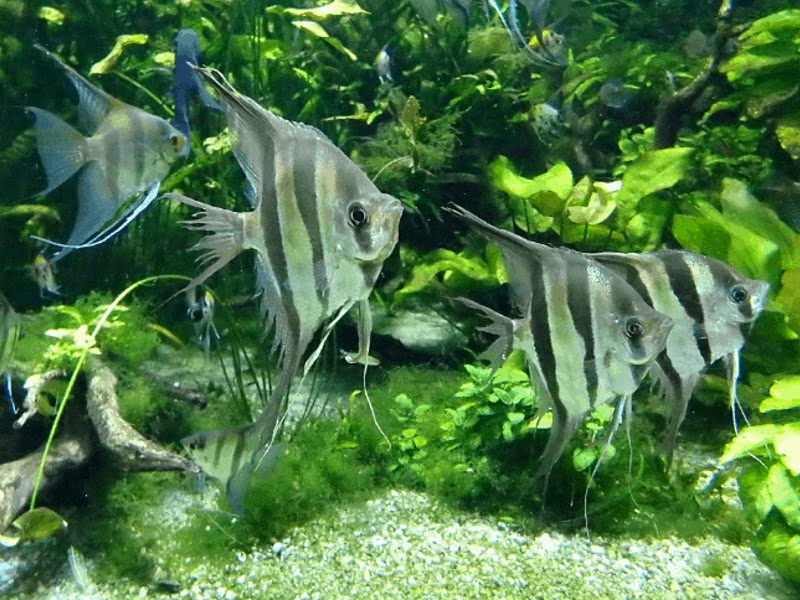
Getting a bigger tank is a good alternative if you are unable to add more fish. Fish are curious animals that have a strong sense of curiosity. In order to keep their interest, they need complex environments.
The kind of environment you can create by adding plants, flower pots, cages, decorations and other fixtures will encourage your angel to explore and thereby banish its boredom, thereby encouraging it to explore.
A small tank will not be able to handle this situation. Angelfish need a lot of space in which to roam around.
I would suggest redoing the whole setup if you feel that your angels have grown too accustomed to their environment. Whenever your fish enters an entirely new environment, he will believe it is an entirely new world to it.
There are pet angelfish that you can keep in your house. The reason is that they like to play with you the same way you do with any other pet.
To encourage them to play with you, place a mirror in front of the enclosure. During the time they spend trying to figure out what they are seeing, they spend a great deal of energy trying.
If you were thinking of the angelfish as an image in a mirror, it would make sense that the angelfish would be able to recognize its image in the mirror.
As a consequence, it cannot be told that it is viewing its reflection; therefore, it cannot recognize it. Also within the aquarium is the possibility to draw.
If your angel can draw, he will have fun. Please do not use permanent markers when you are drawing. This way, your previous drawings will not be permanently stained, so you can start fresh.
Tracing your finger along the walls of the aquarium, rather than tapping the glass, would be a better way to do this. That will make the angel pay attention and come closer.
That might seem like a lot of work to do, and it is indeed. In the event that you are unable to find suitable tankmates for your angelfish, it is up to you to entertain them to make them feel less bored.
Video About The Angelfish Lonely
Conclusions
It is amazing to see these amazing creatures called angelfishes. Nevertheless, their personalities are quite complex and they can be quite intimidating.
Known for their aggressive natures, most of the attention is paid to their temperaments, though their social characteristics have been neglected.
If they are present in a fish tank alone, they may get lonely as they prefer to swim on shoals and might become lonely if they do not have a companion to swim with.
By observing your angelfish closely, you can determine whether they are depressed or not. I would suspect that you must be suspicious if the fish’s colors fade over time and he prefers to swim at the bottom.
There is no doubt that it is important to be aware of water temperature, pH level, and feeding schedules when you are taking care of these things.
It may be advisable to introduce another fish to the tank in that case. If necessary, perhaps you should get a bigger aquarium in order for your fish to have more room to explore.
Your fish should eventually regain its normal shape and be able to show its true colors with a decent amount of energy.

Annette M. Chaney is an experienced marine biologist with over 20 years of experience as an aquarist and fishkeeper. She started her first aquarium at a young age, filling it with frogs and goldfish obtained from the ten-cent pet store.
Annette grew up caring for and breeding African Cichlids, which led to a hobby in high school that doubled as a profitable means. Attending Reed College gave her time to solidify herself as an accomplished aquarium caretaker with an eye for sales. After that, from 2009 – 2013, she studied at Roger Williams University – one of the most prestigious universities for Aquaculture and Aquarium in USA. She is the founder of AquariumCircle since 2010.
